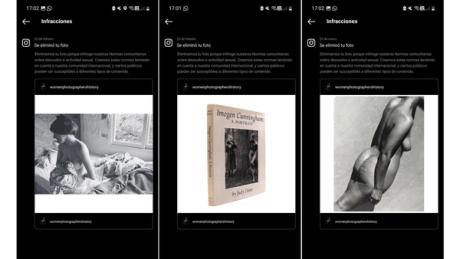
The nipple has been released on social networks! Or so you’d think if you took a look at the headlines over the past two months. This long-awaited and hard-earned reversal seemed too good to be true – and sadly, it was.
These premature proclamations came after Meta’s supervisory board published its “Gender identity and nudity” decision in January, which rightly took Meta to task for its famous directive on the “female nipple” and the gender discrimination that resulted from it.
The board’s call for Meta to uphold human rights standards and “avoid discrimination based on sex or gender identity” distilled the “free the nipple” argument – where female nipples are censored on social media but not male nipples – for its most fundamental and relevant point: equality.
Equality has long been the mission of the “free the nipple” movement, sliding in and out of headlines for years. As such, the premature announcement by countless outlets that the nipple had now been released on the most popular social media platform was not only too excited, but was possibly detrimental to the movement. .
Meta’s oversight committee selects a few cases each quarter for review, for which it may require Meta to republish images it has removed. Along with these decisions, the board gives more nuanced “recommendations” on how the platform could avoid situations that bring business in the first place. While Meta is obligated to respect the content moderation decisions of the board, it is under no obligation to consider the recommendations, let alone adopt them. The three recommendations made by the council in the “Gender Identity and Nudity” case revolved around clarifying language and revising vague guidelines on nudity and gender.
Sixty days after the decision, Meta replied with a vague commitment to “partially implement” each of the recommendations. According to Carolina Are, Innovation Fellow UK Center for Digital CitizensMeta’s answer shows “they are trying to change things”, but implementation will be difficult, because “they still see nudity as hard to moderate and harmful. They still want to protect themselves”.
The “female nipple” is still a fairly pointed issue as platforms face growing conservatism and the imposition of internet regulations like the United States. FOSTA SESTAand the UK Online Safety Bill which have raised concerns about restrictions on freedom of expression on the internet. Payment platforms, websites and social media companies have all felt pressure to target images deemed sexually illicit or otherwise facing litigation, leading to censorship and loss of revenue for artists and the creators. While Meta might finally be convinced that nipple censorship is discriminatory, they are now in a tough spot to implement much of the change.
Meta’s response is vague, but serves to finally acknowledge that something is wrong with their guidelines. The fight to free the nipple has become all the more symbolic in a world where bodies are policed and where access to affirmative care is precarious. By claiming a victory now, we risk prematurely burying a cause that is alive and well, in the news and in history.
